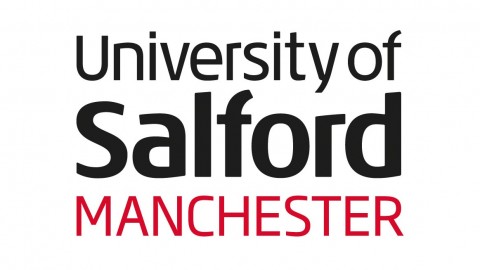Workshop on Case
5th September 2012, University of Salford, Manchester
Organised by Michelle Sheehan, Anders Holmberg and Alison Biggs
Abstract deadline: Saturday 14th April 2012
Call for papers
Abstracts are invited for a special Workshop on Case in association with Mark Baker's (Rutgers) Henry Sweet Lecture at the Annual Meeting of the Linguistics Association of Great Britain 2012.
The workshop will be held on Wednesday, 5th September 2012 at the University of Salford, Manchester.
Background
Since Vergnaud (1977), abstract/structural Case has arguably been one of the core explanatory ideas in generative syntactic theory. The Case Filter in conjunction with Burzio’s (1986: 178) Generalisation (whereby “[a]ll and only the verbs that can assign a θ-role to the subject can assign accusative Case to an object”) provide an elegant account of the distribution of overt nominals as well as various kinds of A-movement in many well-studied languages (i.e. raising, short and long passivisation, and in some recent proposals Obligatory Control). Despite these numerous empirical advantages, though, the rationale for abstract Case has long remained mysterious and this is particularly true in the context of the Minimalist Program. As Pesetsky & Torrego (2011: 52) note, the principles of case assignment “look quite specific to syntax and morphology, with little apparent connection to external cognitive systems”. While it is possible to stipulate that the requirement for Case is imposed by PF, rephrasing Vergnaud’s approach, or ‘LF-visibility’ there seems to be no clear reason why the interfaces should impose such a requirement on DPs.
In addition to these conceptual issues, exciting empirical challenges have arisen for standard Case theory from the study of a broad range of the world’s languages. One obvious example is syntactic ergativity, as discussed by Dixon (1994) and many others, but systematic variation has long been observed in causative constructions (cf. Kayne 1975, Baker 1988) and ditransitives (Dryer 1987, Haspelmath 2005). Moreover, it appears that languages may even vary as to their sensitivity to Case-related locality effects such as dative intervention (cf. McGuiness 1998) and the Person Case Constraint (cf. Bonet 1991, 1994, Anagnostopoulou 2003, Béjar & Rezac 2009). Partly because of variation of this kind, some people have explored the possibility of eliminating structural Case altogether. Thus Marantz (1991) takes dependent Case/case to be assigned in the morphology (cf. also McFadden 2004, Landau 2006, Sigurðsson 2008, 2012). Baker (2008) and Baker & Vinokurova (2010) take a more nuanced approach, arguing that both agree-related structural Case and a version of dependent Case are required, with some languages even employing both possibilities.
In connection to Mark Baker’s Henry Sweet Lecture, we invite papers on topics related to the status of Case in current syntactic theory, which address one or more of the following questions: Do all languages have structural Case? Is there a need for one or more Case parameters? Is Case strictly a PF-phenomenon? What revisions are forced to the standard picture by novel case-related data? What is the status of non-structural (inherent and lexical) case (cf. Chomsky 1981, Woolford 2006), and how do they interact with structural Case? Are genitive/dative structural Cases? How can ergative alignment be accommodated in the standard picture? Is A-movement always triggered by the unavailability of Case? Is defective intervention a universal principle of grammar? What is the relation, if any, between Case and agreement? Is there a relation between pro-drop and Case? Does PRO have Case? How can interactions between Case/case and information structure be modeled? Can Case have LF-related functions, or is it strictly uninterpretable?
How and when to submit an abstract
Both members and non-members are invited to offer papers for the Workshop on Case
The normal length for papers delivered at LAGB meetings is 25 minutes (plus 15 minutes discussion).
The deadline for submissions is 14th April 2012.
All enquiries about abstract submission should be directed to the Meetings Secretary, Oliver Bond (o.l.bond@salford.ac.uk).
Each person is permitted to submit a maximum of one single-authored paper and one-joint authored paper. All abstracts should be submitted electronically using EasyChair, which can be accessed at the following address: https://www.easychair.org/conferences/?conf=lagb2012
To be able to submit an abstract you must first sign up for an EasyChair account to access the LAGB submission page. Once you have created an account, please click on the New Submission link and follow the instructions on screen.
If you are applying for a conference bursary (see eligibility details in the first circular), your abstract should be submitted in the normal way using the EasyChair system, but you must also fill in a bursary application form on the LAGB website: http://www.lagb.org.uk/bursaries-form
Abstract format
Abstracts must be no longer than one A4 page with margins of at least 2.5cm on all sides. Only the first page of any abstract submitted will be considered – no appendices or pages for references can be accepted. If the formatting instructions are not followed the abstract may not be considered. You may use single spacing but type must be no smaller than 12 points. Please indicate clearly on the anonymous abstract that your presentation is intended for the ‘Workshop on Case’.
Abstracts must be submitted anonymously and should include no indication of the author’s identity. The submitted files should be in one of the following formats: pdf (preferred), or Word (doc, docx), or plain text. Any phonetic characters should either be embedded in a pdf file, or be in the Doulos SIL font, which can be downloaded for free from this site: http://scripts.sil.org/DoulosSIL_download

